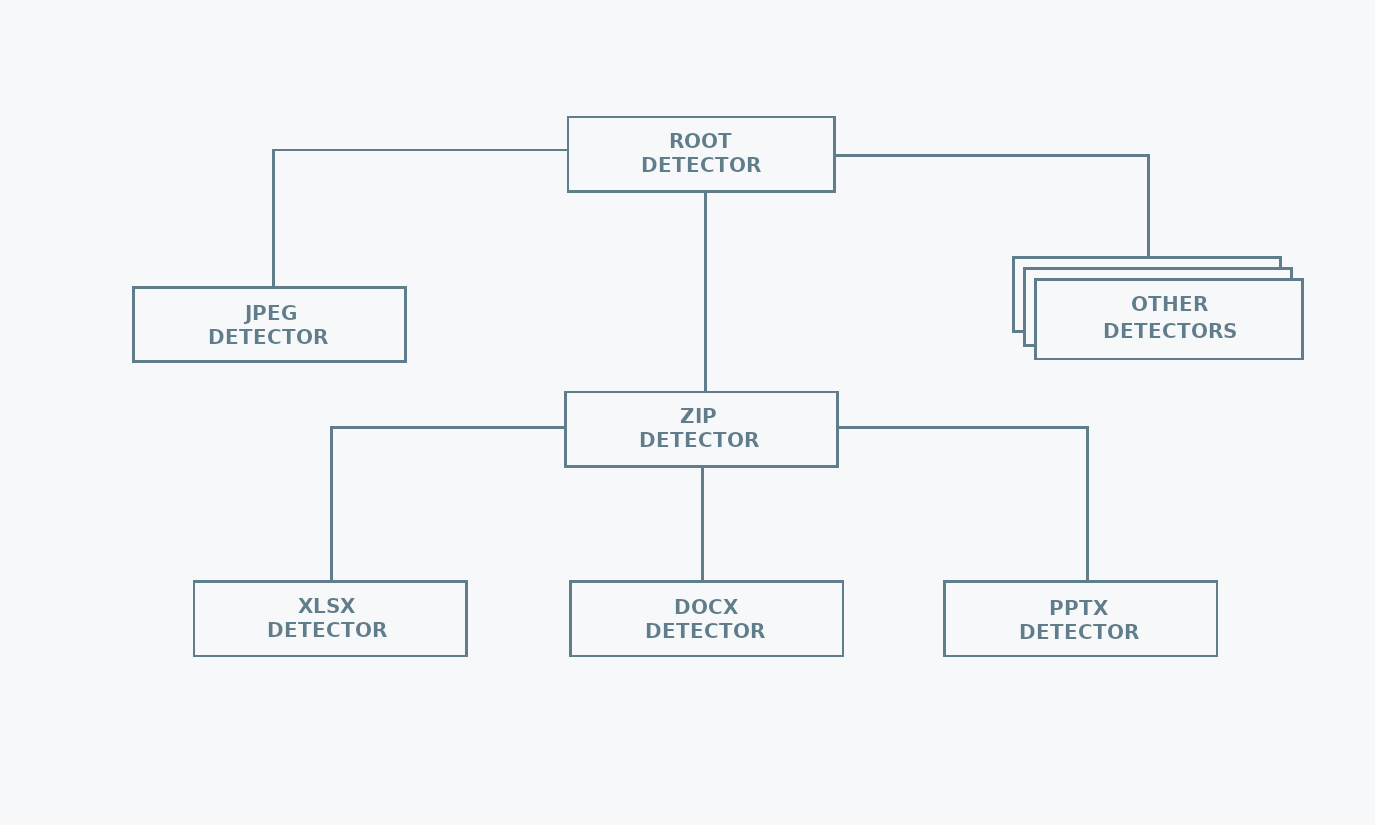mimetype
A package for detecting MIME types and extensions based on magic numbers
Goroutine safe, extensible, no C bindings




Features
Install
go get github.com/gabriel-vasile/mimetype
Usage
mtype := mimetype.Detect([]byte)
mtype, err := mimetype.DetectReader(io.Reader)
mtype, err := mimetype.DetectFile("/path/to/file")
fmt.Println(mtype.String(), mtype.Extension())
See the runnable Go Playground examples.
Usage'
Only use libraries like mimetype as a last resort. Content type detection
using magic numbers is slow, inaccurate, and non-standard. Most of the times
protocols have methods for specifying such metadata; e.g., Content-Type header
in HTTP and SMTP.
FAQ
Q: My file is in the list of supported MIME types but
it is not correctly detected. What should I do?
A: Some file formats (often Microsoft Office documents) keep their signatures
towards the end of the file. Try increasing the number of bytes used for detection
with:
mimetype.SetLimit(1024*1024)
mimetype.SetLimit(0)
mimetype.DetectFile("file.doc")
If increasing the limit does not help, please
open an issue.
Structure
mimetype uses a hierarchical structure to keep the MIME type detection logic.
This reduces the number of calls needed for detecting the file type. The reason
behind this choice is that there are file formats used as containers for other
file formats. For example, Microsoft Office files are just zip archives,
containing specific metadata files. Once a file has been identified as a
zip, there is no need to check if it is a text file, but it is worth checking if
it is an Microsoft Office file.
To prevent loading entire files into memory, when detecting from a
reader
or from a file
mimetype limits itself to reading only the header of the input.
Performance
Thanks to the hierarchical structure, searching for common formats first,
and limiting itself to file headers, mimetype matches the performance of
stdlib http.DetectContentType while outperforming the alternative package.
mimetype http.DetectContentType filetype
BenchmarkMatchTar-24 250 ns/op 400 ns/op 3778 ns/op
BenchmarkMatchZip-24 524 ns/op 351 ns/op 4884 ns/op
BenchmarkMatchJpeg-24 103 ns/op 228 ns/op 839 ns/op
BenchmarkMatchGif-24 139 ns/op 202 ns/op 751 ns/op
BenchmarkMatchPng-24 165 ns/op 221 ns/op 1176 ns/op
Contributing
See CONTRIBUTING.md.






